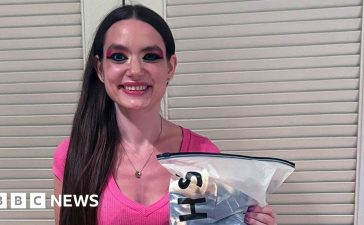
A High Court judge is to rule on whether a firm’s legal documents should lose their legal privilege due to ‘iniquity’ amid hacking and torture claims.
The case involves allegations of the detention of two Jordanian lawyers as well as claims of hacking a rival firm’s emails.
Karam Al Sadeq is suing international firm Dechert, its former partner Neil Gerrard and others, claiming unlawful abduction, detention, torture, interrogation, and being denied proper legal representation during an investigation conducted by the firm into the sovereign investment fund of Ras al Khaimah, an emirate of the UAE.
Dechert and all respondents deny all claims of any wrongdoing. The firm has claimed legal professional privilege and has withheld a large number of documents.
In court yesterday Tamara Oppenheimer KC, for Al Sadeq, pointed out that only a ‘very small quantity’ of contemporaneous documents have been disclosed because so many are subject to privilege.
At a hearing in the Court of Appeal, Al Sadeq is appealing against a previous decision to dismiss his challenge to aspects of the respondents’ claims to legal professional privilege. He was seeking permission to be allowed to rely on documents referred to as ‘RAK Projects Reports’, which allegedly comprise evidence of unlawful hacking activities, and an affidavit of a private investigator.
New evidence had since been disclosed in a separate lawsuit Dechert is involved in, which was an email where Gerrard appeared to be saying ‘we want to bring this within the scope of legal privilege if we can’, the court heard.
Enyo Law, which is representing Dechert, has been reviewing the documents which the firm holds about the case, but Sadeq argues it has taken ‘too narrow an approach to the scope of the iniquity exception’ when conducting its disclosure review.
Oppenheimer argued that the documents should have been disclosed because they were ‘fruits of hacking’ by RAK – whether Dechert appreciated it or not.
Oppenheimer said: ‘The fact that they have not disclosed a single document in these proceedings as being subject to the iniquity exception supports Mr Al Sadeq’s submission that the Respondents have adopted too narrow an approach in identifying documents forming “part of” the iniquity.’
She also argued it was in the public interest that further privileged evidence be admitted. ‘This material raises serious concerns about the propriety of the conduct of at least one English solicitor, Mr Gerrard, which is in itself reason to grant permission.’
Philip Edey KC, for Dechert, accepted that there appeared to be a prima facie case that hacking had taken place, but argued this should not mean any documents lose their professional privilege, as Al Sadeq’s case did not concern hacking. ‘We do not say there is no evidence of hacking’, Edey told the court. ‘We say hacking tells you nothing about a propensity to torture.’
He also said the Gerrard email was not disclosed because it dated from 2015 and there were no allegations relating to hacking in 2015.
Lord Justice Underhill told the court he would reserve judgment until a later date and described the Gerrard email as ‘troubling’. He said he believed the appellant was arguing the email showed ‘Mr Gerrard was trying to get material that was not privileged under a privileged label.
‘The real question for me is whether this paragraph that was not disclosed, the starting assumption is someone has looked at this document and said, either it is not relevant or it is privileged.’











